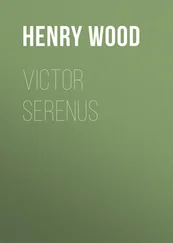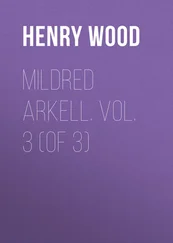Henry Wood - Elster's Folly
Здесь есть возможность читать онлайн «Henry Wood - Elster's Folly» — ознакомительный отрывок электронной книги совершенно бесплатно, а после прочтения отрывка купить полную версию. В некоторых случаях можно слушать аудио, скачать через торрент в формате fb2 и присутствует краткое содержание. Издательство: Иностранный паблик, Жанр: foreign_prose, literature_19, foreign_antique, на английском языке. Описание произведения, (предисловие) а так же отзывы посетителей доступны на портале библиотеки ЛибКат.
- Название:Elster's Folly
- Автор:
- Издательство:Иностранный паблик
- Жанр:
- Год:неизвестен
- ISBN:нет данных
- Рейтинг книги:3 / 5. Голосов: 1
-
Избранное:Добавить в избранное
- Отзывы:
-
Ваша оценка:
- 60
- 1
- 2
- 3
- 4
- 5
Elster's Folly: краткое содержание, описание и аннотация
Предлагаем к чтению аннотацию, описание, краткое содержание или предисловие (зависит от того, что написал сам автор книги «Elster's Folly»). Если вы не нашли необходимую информацию о книге — напишите в комментариях, мы постараемся отыскать её.
Elster's Folly — читать онлайн ознакомительный отрывок
Ниже представлен текст книги, разбитый по страницам. Система сохранения места последней прочитанной страницы, позволяет с удобством читать онлайн бесплатно книгу «Elster's Folly», без необходимости каждый раз заново искать на чём Вы остановились. Поставьте закладку, и сможете в любой момент перейти на страницу, на которой закончили чтение.
Интервал:
Закладка:
"I didn't know he had hurt himself at all," returned Val rather coolly, who had been on the river at the time in somebody's skiff, and saw nothing of the occurrence. "What has he done?"
"He slipped down on the slopes and twisted his ankle. I suppose they will be coming back soon."
"I suppose they will," was the answer. Val seemed in an ungracious mood. He and Mr. O'Moore and young Carteret were the only three who had remained behind. Anne asked Val why he did not go and look on; and he answered, because he didn't want to.
It was getting on for five o'clock when the boats were discerned returning. How they clustered on the banks, watching the excited rowers, some pale with their exertions, others in a white heat! Captain Dawkes was first, and was doing all he could to keep so; but when only a boat's length from the winning-post another shot past him, and won by half a length. It was the young Oxonian, Mr. Shute—though indeed it does not much matter who it was, save that it was not Lord Hartledon.
"Strike your colours, ladies, you that sport the crimson and purple!" called out a laughing voice from one of the skiffs. "Oxford blue wins."
Lord Hartledon arrived last. He did not get up for some minutes after the rest were in. In short, he was distanced.
"Hart has hurt his arm as well as his foot," observed one of the others, as he came alongside. "That's why he got distanced."
"No, it was not," dissented Lord Hartledon, looking up from his skiff at the crowd of fair faces bent down upon him. "My arm is all right; it only gave me a few twinges when I first started. My oar fouled, and I could not get right again; so, finding I had lost too much ground, I gave up the contest. Anne, had I known I should disgrace my colours, I would not have given them to you ."
"Miss Ashton loses, and Maude wins!" cried the countess-dowager, executing a little dance of triumph. "Maude is the only one who wears the Oxford blue."
It was true. The young Oxonian was a retiring and timid man, and none had voluntarily assumed his colours. But no one heeded the countess-dowager.
"You are like a child, Hartledon, denying that your arm's damaged!" exclaimed Captain Dawkes. "I know it is: I could see it by the way you struck your oar all along."
What feeling is it in man that prompts him to disclaim physical pain?—make light of personal injury? Lord Hartledon's ankle was swelling, at the bottom of the boat; and without the slightest doubt his arm was paining him, although perhaps at the moment not very considerably. But he maintained his own assertions, and protested his arm was as sound as the best arm present. "I could go over the work again with pleasure," cried he.
"Nonsense, Hart! You could not."
"And I will go over it," he added, warming with the opposition. "Who'll try his strength with me? There's plenty of time before dinner."
"I will," eagerly spoke young Carteret, who had been, as was remarked, one of those on land, and was wild to be handling the oars. "If Dawkes will let me have his skiff, I'll bet you ten to five you are distanced again, Hartledon."
Perhaps Lord Hartledon had not thought his challenge would be taken seriously. But when he saw the eager, joyous look of the boy Carteret—he was not yet nineteen—the flushed pleasure of the beardless face, he would not have retracted it for the world. He was just as good-natured as Percival Elster.
"Dawkes will let you have his skiff, Carteret."
Captain Dawkes was exceedingly glad to be rid of it. Good boatman though he was, he rarely cared to spend his strength superfluously, when nothing was to be gained by it, and had no fancy to row his skiff back to its moorings, as most of the others were already doing with theirs. He leaped out.
"Any one but you, Hartledon, would be glad to come out of that tilting thing, and enjoy a rest, and get your face cool," cried the countess-dowager.
"I dare say they might, ma'am. I'm afraid I am given to obstinacy; always was. Be quick, Carteret."
Mr. Carteret was hastily stripping himself of his coat, and any odds and ends of attire he deemed superfluous. "One moment, Hartledon; only one moment," came the joyous response.
"And you'll come home with your arm and your ankle like your colours, Hartledon—crimson and purple," screamed the dowager. "And you'll be laid up, and go on perhaps to locked jaw; and then you'll expect me to nurse you!"
"I shall expect nothing of the sort, ma'am, I pledge you my word; I'll nurse myself. All ready, Carteret?"
"All ready. Same point as before, Hart?"
"Same point: round the boat and home again."
"And it's ten sovs. to five, Hart?"
"All right. You'll lose, Carteret."
Carteret laughed. He saw the five sovereigns as surely in his possession as he saw the sculls in his hands. There was no trouble with the start this time, and they were off at once.
Lord Hartledon took the lead. He was spurring his strength to the uttermost: perhaps out of bravado; that he might show them nothing was the matter with his arm. But Mr. Carteret gained on him; and as they turned the point and went out of sight, the young man's boat was the foremost.
The race had been kept—as the sporting men amongst them styled it—dark. Not an inkling of it had been suffered to get abroad, or, as Lord Hartledon had observed, they should have the banks swarming. The consequence was, that not more than half-a-dozen curious idlers had assembled: those were on the opposite side, and had now gone down with the boats to Calne. No spectators, either on the river or the shore, attended this lesser contest: Lord Hartledon and Mr. Carteret had it all to themselves.
And meanwhile, during the time Lord Hartledon had remained at rest in his skiff under the winning flag, Percival Elster never addressed one word to him. There he stood, on the edge of the bank; but not a syllable spoke he, good, bad, or indifferent.
Miss Ashton was looking for her brother, and might just as well have looked for a needle in a bottle of hay. Arthur was off somewhere.
"You need not go home yet, Anne," said Val.
"I must. I have to dress for dinner. It is all to be very smart to-night, you know," she said, with a merry laugh.
"With Shute in the post of honour. Who'd have thought that awkward, quiet fellow would win? I will see you home, Anne, if you must go."
Miss Ashton coloured vividly with embarrassment. In the present state of affairs, she did not know whether that might be permitted: poor Val was out of favour at the Rectory. He detected the feeling, and it tended to vex him more and more.
"Nonsense, Anne! The veto has not yet been interposed, and they can't kill you for allowing my escort. Stay here if you like: if you go, I shall see you home."
It was quite imperative that she should go, for dinner at Hartledon was that evening fixed for seven o'clock, and there would be little enough time to dress and return again. They set out, walking side by side. Anne told him of what Lord Hartledon had said to her that day; and Val coloured with shame at the sullenness he had displayed, and his heart went into a glow of repentance. Had he met his brother then, he had clasped his hand, and poured forth his contrition.
He met some one else instead, almost immediately. It was Dr. Ashton, coming for Anne. Percival was not wanted now: was not invited to continue his escort. A cold, civil word or two passed, and Val struck across the grove into the high-road, and returned to Hartledon.
He was about to turn in at the lodge-gates with his usual greeting to Mrs. Capper when his attention was caught by a figure coming down the avenue. A man in a long coat, his face ornamented with red whiskers. It required no second glance for recognition. Whiskers and coat proclaimed their owner at once; and if ever Val Elster's heart leaped into his mouth, it certainly leaped then.
Читать дальшеИнтервал:
Закладка:
Похожие книги на «Elster's Folly»
Представляем Вашему вниманию похожие книги на «Elster's Folly» списком для выбора. Мы отобрали схожую по названию и смыслу литературу в надежде предоставить читателям больше вариантов отыскать новые, интересные, ещё непрочитанные произведения.
Обсуждение, отзывы о книге «Elster's Folly» и просто собственные мнения читателей. Оставьте ваши комментарии, напишите, что Вы думаете о произведении, его смысле или главных героях. Укажите что конкретно понравилось, а что нет, и почему Вы так считаете.












